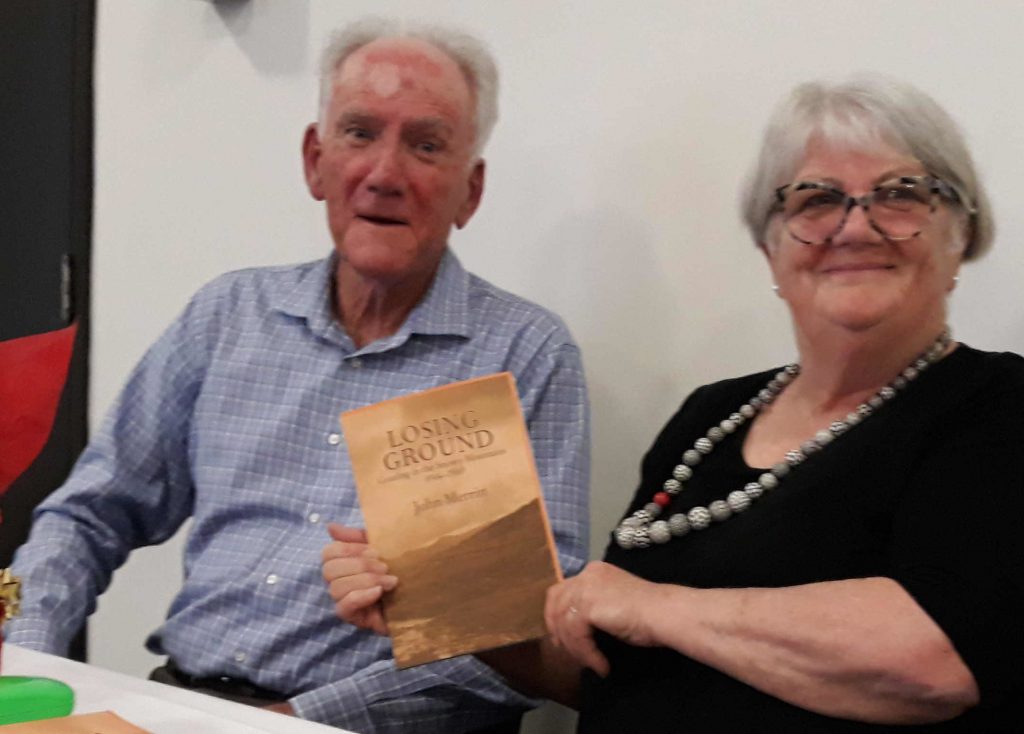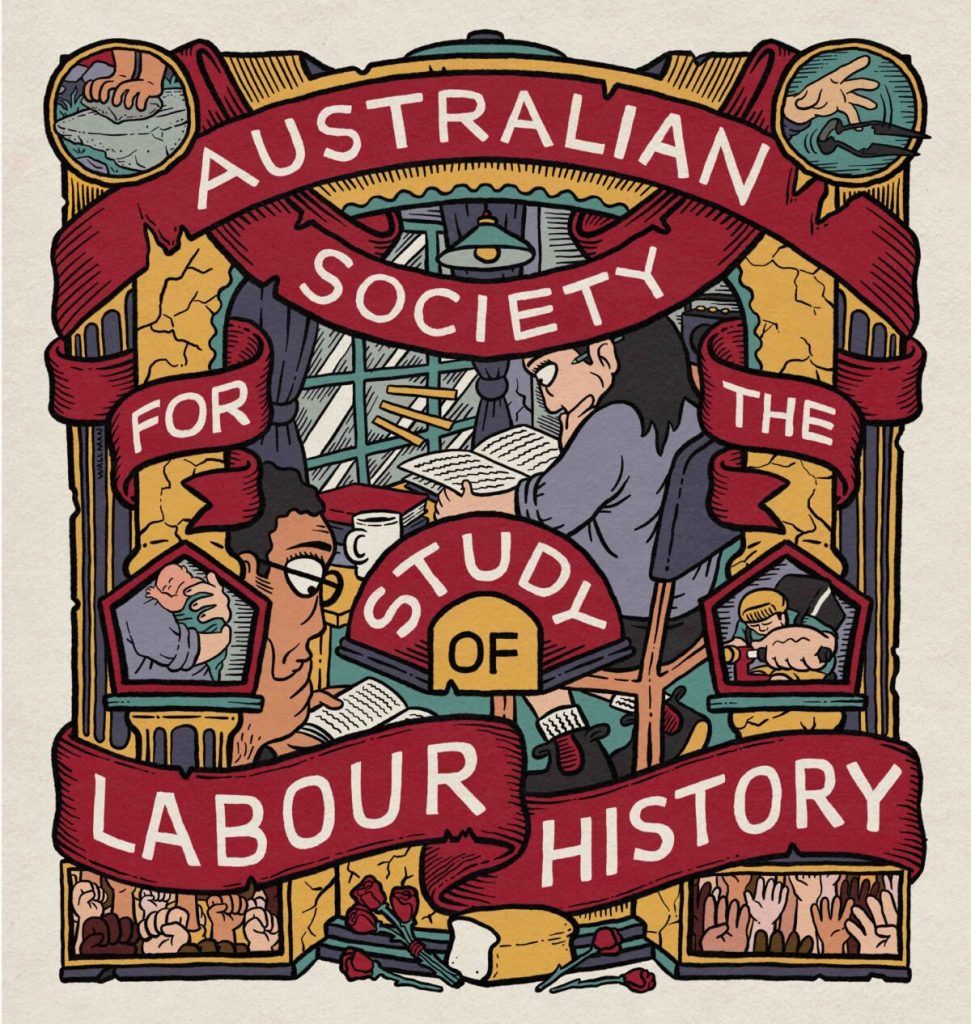“A Brief History of Labour History”
John is a retired ANU history department academic whose PhD was a history of the Federated Ironworkers Association. He was a foundation member of the Australian Society for the Study of Labour History. He has written on the AWU and on the topic of Strikes; and a more recent work is Losing Ground: Grazing in the Snowy Mountains, 1944-1969.

In the 1950s and 1960s, all Australian universities taught labour history. But by the early 1970s, this was no longer true. Why had it been so popular? Why did it then decline?
A few things should be mentioned about the popularity of labour history in these years.
In 1930 W.K. Hancock wrote a short history of Australia, in which he characterised Labor parties as parties of “initiative”, and conservative parties as parties of “resistance”. In the 1940s and 1950s, Labor was seen to be leading the way into the future.

Secondly, Robin Gollan arrived at the ANU’s Research School of Social Sciences [in 1953], an ex-Communist Party member; and later the author of Radical & Working Class Politics (1960). Lots of students wanted to work with him.
And thirdly, Robert Menzies established Commonwealth Scholarships [in 1951], which enabled a lot of people to go to university who might not have been able to otherwise. For people of working-class background, labour history was partly their own family history.
At the 1961 conference of ANZAAS (Australian & NZ Association for the Advancement of Science), Bob Gollan and Ian Turner founded the Australian Society for the Study of Labour History. The following year, the Labour History journal began, and is still going today – two issues a year, as well as special issues, such as one on women at work [1975], one of the first serious studies of this topic. (I note that the most recent issue has Yasmin Rittau’s review of Women of Steel, directed and produced by Robynne Murphy, recently screened in town.) There have also been special issues on Strikes, and the Depression.
By 1970 labour history was increasingly under attack. “The arrogant and the ignorant were a problem for us”: labour historians were thought by such people to be crypto-communists, and even Australian history was considered by some to be a second-rate field of study. Subsequently Gollan and Turner were labelled radical nationalists by a new era of ANU history department members. The Labor party was criticised as not revolutionary enough. Then came the feminists! who pointed out that labour history was mainly his-story. Then came aboriginal history. John was editing the journal in these years and feels that the so called “strange death of labour history”, as described by Verity Burgmann, was merely the inevitable transformation of Australian historiography. The most sustained attack then came from social historians, who gave impetus to a structuralist critique of those who wanted an emphasis on class.
John was glad that the flirtation with post-modernism had passed. These days more cultural and identity history is being written but the bulk of the old empirical history writing goes on as before. He’d like to see more academics writing histories for a broader audience.
See John’s article in the 2008 edition of Labour History (www.jstor.org/stable/27516268?seq=1#references_tab_contents) for further discussion of this topic.
The Australian Society for the Study of Labour History was inaugurated at a meeting held at the University of Queensland in May 1961 during a congress of the Australian & New Zealand Association for the Advancement of Science. Its foundation members included Asa Briggs, Bob Gollan, Eric Fry, Daphne Gollan, Don Rawson, John Merritt, Sam Merrifield, Joe Harris and others. The Society’s journal Labour History has been published regularly since its first beginnings as a bulletin in 1961. The Society has branches in Canberra, Brisbane, Hunter Valley, Sydney, Illawarra, Melbourne, Adelaide, Tasmania, and Perth. Branches are involved in labour history and research, and heritage preservation. In 1999 the ASSHL and the ACTU initiated the MUA Dispute Archive Project, to collect and preserve documents relating to the 1998 dispute between the Maritime Union of Australia (MUA) and Patrick Stevedores. https://openresearch-repository.anu.edu.au/handle/1885/140550
